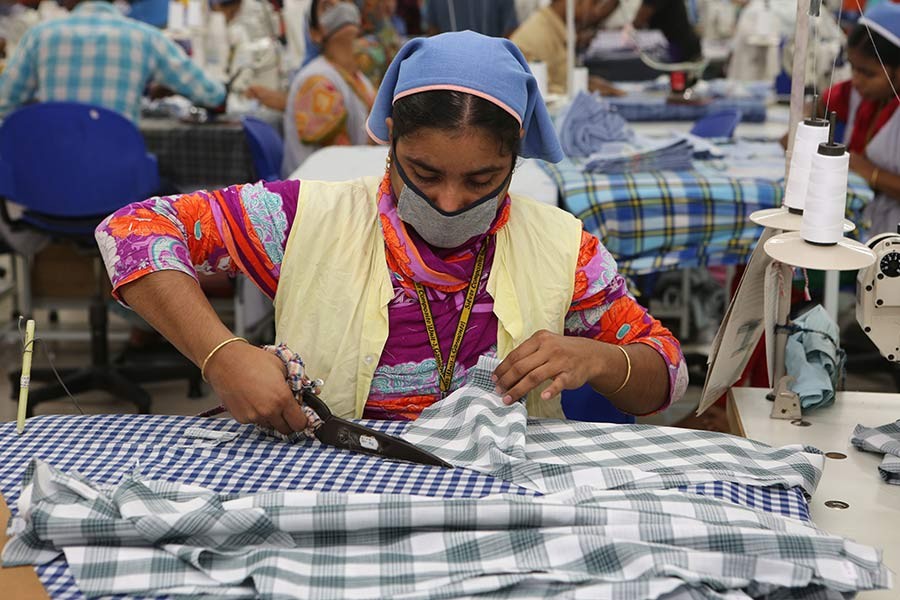The issue of fixing wages for the workers engaged in the country's all-important readymade garment (RMG) sector has predictably become a contentious one. The proposals submitted on wage structure by two main actors --- owners of apparel units and workers --- at the third meeting of the wages board for the RMG workers on Monday last differed widely. The minimum wage demanded by the representative of the workers on the board for entry-point workers is nearly twice the amount proposed by the Bangladesh Garment Manufacturers and Exporters Association (BGMEA), the body that represents the owners at the wage board.
However, the minimum wage that the workers' representative, who is a leader of the ruling party's labour front, proposed at the meeting was 25 per cent less than what various garment workers' organisations have been demanding publicly so far. The trade union bodies have been demanding Tk.16,000 as minimum wage for the past few months. But the BGMEA has proposed a minimum wage of only Tk.6360. A number of labour organisations, reportedly, have rejected both the proposals outright and decided to stick to the demand for higher minimum pay.
It is obvious there would be hard bargaining at the next meetings of the wages board and beyond over the new wage structure for RMG workers. And, at one point of time, an agreement between the two sides is very much likely. Both owners and workers would have to take a realistic approach and take into cognizance all the factors --- global market conditions, competition, state of export revenue, cost of remediation of factories, rise in the cost of living, need for ensuring a living wage etc. --- while negotiating a new wage structure. Both sides need to shun intransigence and try to accommodate each other's points of view.
That the minimum wage proposed by the owners is well short of what is needed for meeting basic needs of an entry-point RMG worker does not need any elaboration. If the rate of inflation, which was around 6.0 per cent a year since the current wage structure was put into effect in 2013, is adjusted, the minimum wage now stands at around Tk.7200. The truth is the actual cost of living is always higher than what is officially estimated in Bangladesh. So, any demand from the workers to ensure a living wage would not be out of place at all.
The BGMEA does need to look into another issue that hurts its image both at home and abroad. There are a few garment factories that survive on sub-contracts awarded to them by large BGMEA member factories. But these factories, in most cases, do not pay their workers the officially fixed wages and exploit them (workers) to the maximum possible extent. The Ministry of Labour and the BGMEA should sort out this problem as early as possible.
Yet another issue --- lack of genuine representation of RMG workers in talks with the owners and the government --- needs to be examined seriously. In the absence of such representation, it becomes difficult for the workers to own decisions taken on their behalf by others. This problem could be resolved effectively if the workers' unions at the factory level are told to elect an apex body at the national level that would have the mandate to protect and promote the interest of the apparel workers.


